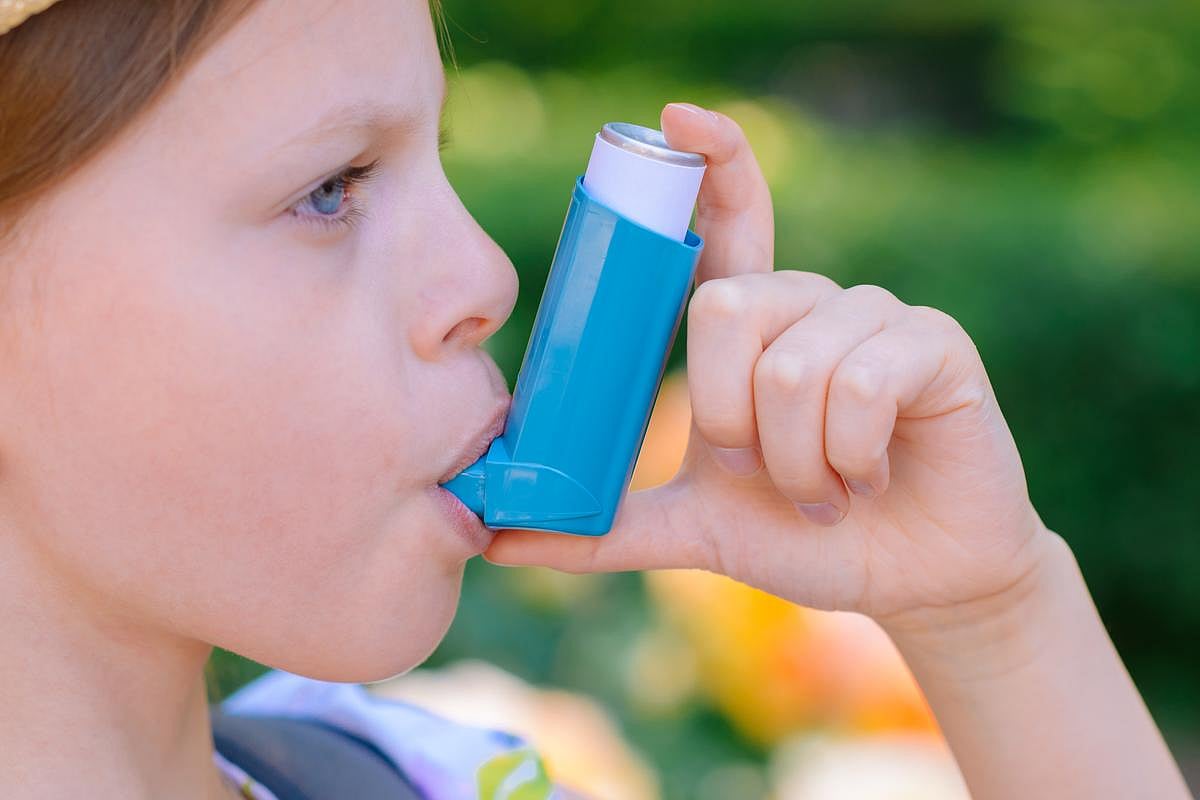Get Healthy!

- Dennis Thompson
- Posted April 16, 2025
Timing Might Be Everything With Asthma Inhalers
Folks with asthma might better control their symptoms by precisely timing when they use their inhaler, a new study says.
A single daily preventive dose of inhaled corticosteroid is best taken at mid-afternoon for effective asthma control, researchers reported April 15 in the journal Thorax.
That timing will suppress the usual nighttime worsening of symptoms better than using an inhaler at other times of the day, researchers said.
They said the perfect timing is 4 p.m., as the body is most responsive to inhaled steroids at that time.
“Mid-afternoon dosing … better improved nocturnal lung function and inflammatory biomarkers compared with the alternative dosage timings,” concluded the research team led by Hannah Jane Durrington, a clinician scientist at the University of Manchester in the U.K..
For the study, researchers followed 25 people ages 18 to 65 with mild to moderate asthma, who were randomly assigned to one of three different dosing regimens.
Some took a daily inhaler dose between 8 a.m. and 9 a.m.; others a daily dose between 3 p.m. and 4 p.m.; and the rest took two doses -- one between 8 a.m. and 9 a.m. and the second between 8 p.m. and 9 p.m.
Folks stayed on their assigned regimen for 28 days, then swapped to a different one after a two- to three-week gap. By the end, all participants had tried every regimen.
The afternoon dosing improved people’s nighttime lung function and reduced their counts of white blood cells linked to allergy response, researchers found.
They said these results support the concept of chronotherapy, or adjusting a person’s medication timing to jibe with their biological rhythms.
The cascade of inflammation linked to asthma symptoms tends to start in mid-afternoon, researchers noted, which might explain why taking a preventive inhaler dose then could have a better effect.
An accompanying editorial noted that the mid-afternoon dosing regimen did not result in better overall symptom control.
However, that might be due to the fact that the study involved only a handful of people and they were followed for a relatively short time.
The editorial also noted that getting people to use their inhaler in the mid-afternoon might be tough.
“When one considers the translation of these findings into clinical practice, with adherence to asthma therapies being the greatest challenge – around 30-40% of the general population struggles with inhaler compliance – introducing a specific time for inhaler use could potentially complicate matters further,” the editorial said. It was co-written by Dr. Richard Edward Russell, head of immunobiology at King’s College London in the U.K.
Researchers recommend that further studies be performed in larger groups to verify the impact of timing inhaler doses.
More information
The Mayo Clinic has more on asthma inhalers.
SOURCE: BMJ, news release, April 15, 2025
